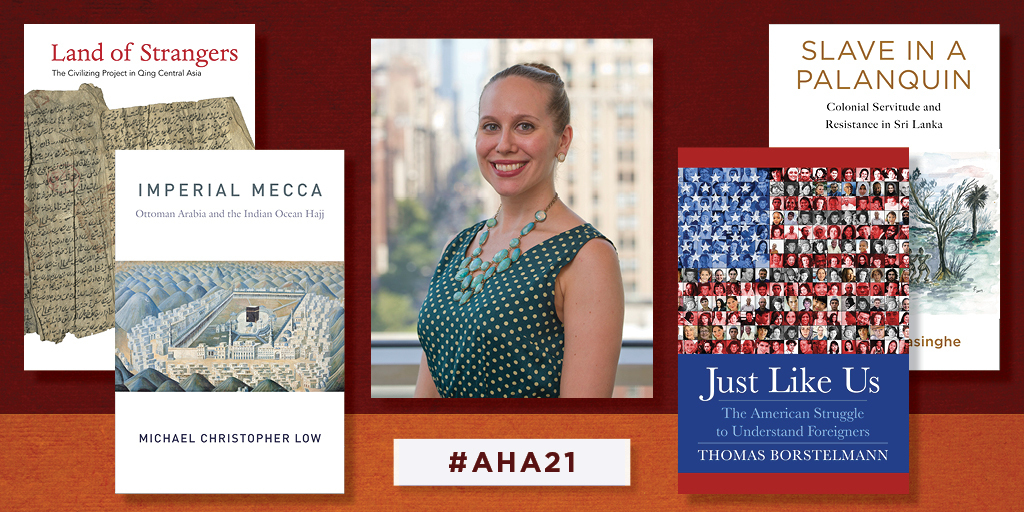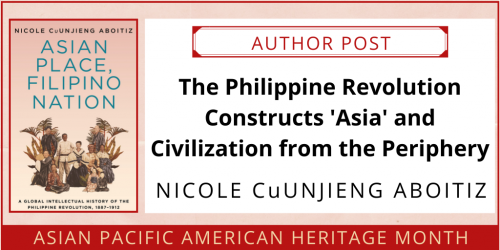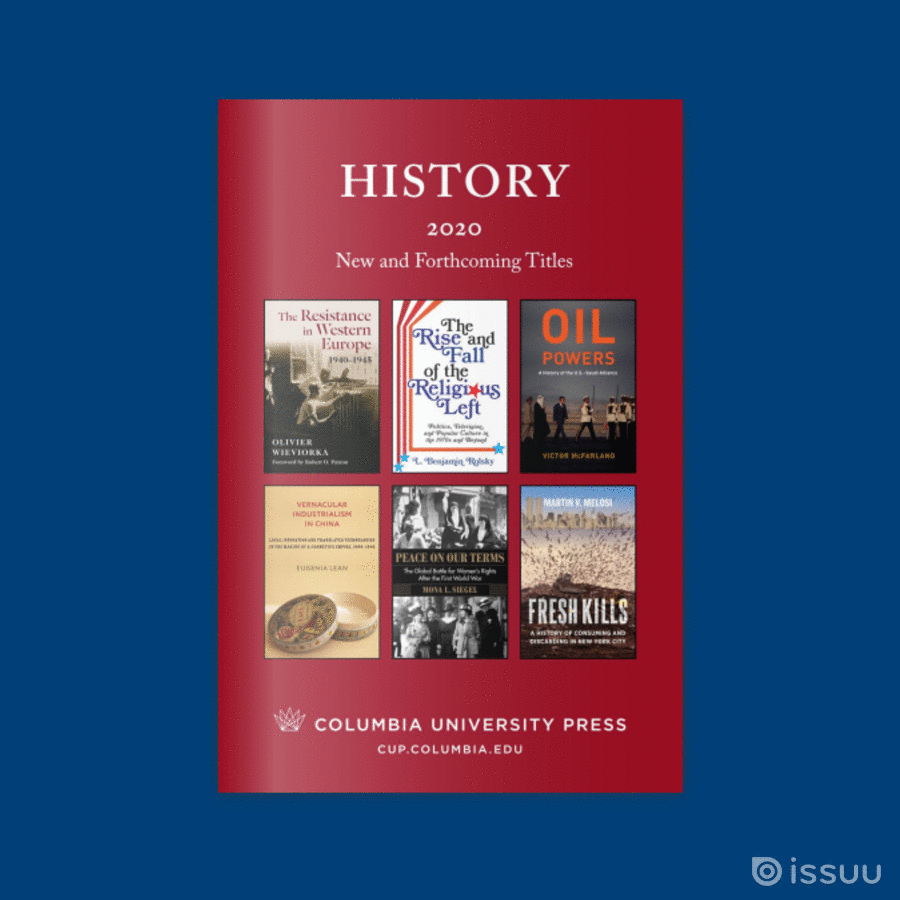Browse Our AHA Virtual Book Exhibit with Caelyn Cobb

Hello and welcome to the Columbia University Press American Historical Association virtual exhibit, coming live—once again—from our socially distanced homes to yours. I’m Caelyn Cobb, the editor for global history, and I’m so disappointed not to see any of your faces.
January is a time of new beginnings, and ordinarily, this conference is a perfect opportunity to look out for what’s to come—forthcoming books, new scholarship, and up-and-coming scholars just entering the scene. This year, though, I can’t help but think about the year past, for reasons obvious to all of us. So many great books were published throughout 2020, many of which were completed, copyedited, and proofread against the backdrop of a pandemic and an off-the-rails, doomscroll-inducing period in American politics. As you explore our virtual AHA booth, be sure to give a little extra love to these intrepid 2020 titles, which were launched into unprecedented chaos without the benefit of traditional book talks, signings, and in-person conferences.
Given my purview at the press, I’m partial to our international and global histories. Here’s a brief listing of some recent authors in this field who deserve a round of applause for all their hard work in these difficult times. Get 20% off these hardy new scholarly titles and more on our website using AHA promo code AHA21.
Spring/Summer 2020
- Peter Lavelle, The Profits of Nature—a microhistorical look at colonial governance on the borderlands during the late Qing Empire
- Xioayuan Liu, To the End of Revolution—a look at the fateful ten years (1949–1959) when China and Tibet clashed over the incorporation of Tibet into Republican China
- Nicole CuUnjieng Aboitiz, Asian Place, Filipino Nation—a pan-Asian, global history of the Philippine Revolution
- Thomas Borstelmann, Just Like Us—a study of foreignness throughout American history, exploring how Americans’ worst impulses—toward American exceptionalism and perceived universality—also inform the nation’s best qualities: acceptance and diversity
- Brian Dott, The Chile Pepper in China—the surprising, global origin story of a ubiquitous part of Chinese cuisine
- Eugenia Lean, Vernacular Industrialism in China—a microhistorical take on nontraditional entrepreneurship in early twentieth-century China
Fall/Winter 2020
- Nira Wickramasinghe, Slave in a Palanquin—a bottom-up history of slavery and the slave trade at a crucial crossroads in the Indian Ocean world
- Eric Schluessel, Land of Strangers—how ordinary people experienced the Chinese takeover in Xinjiang in the late Qing dynasty
- Michael Christopher Low, Imperial Mecca—the global history of the hajj as a site of imperial and civilizational competition between the Ottomans and the British
- Joan Wallach Scott, On the Judgment of History—a powerful reflection on whether history—and those with a vested interest in preserving it—can truly provide absolution and truth
- Peter Hamilton, Made in Hong Kong—an exploration of the transnational business and educational networks that turned Hong Kong, and subsequently China, into a global economic powerhouse in the twentieth century
- Audrey Truschke, The Language of History—a groundbreaking look at how Sanskrit writings on Muslim rule in premodern India reveal a complex, intertwined relationship between Muslims and Hindus in this foundational period of Indian history
Check back over the coming days for author Q&As and many tweets from yours truly at @caelyncobb.
Save 20 percent on our conference titles on display when you use coupon code AHA at checkout on our website through March 1. 2021.
Categories:American Historical AssociationAmerican HistoryAsian StudiesBook ExcerptHistoryVirtual Exhibits
Tags:AHA2021Asian Place Filipino NationAudrey TruschkeBrian DottCaelyn CobbEric SchluesselEugenia LeanImperial MeccaJoan Wallach ScottJust Like UsLand of StrangersMade in Hong KongMichael Christopher LowNicole CuUnjieng AboitizNira WickramasingheOn the Judgment of HistoryPeter B. LavellePeter HamiltonSlave in a PalanquinThe Chile Pepper in ChinaThe Language of HistoryThe Profits of NatureThomas BorstelmannTO the End of RevolutionVernacular Industrialism in ChinaXioayuan Liu









